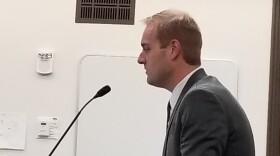North Dakota is in line to receive at least $100 million from the Infrastructure Investment and Jobs Act, for broadband Internet.
Prior to that award, the state is receiving more than $5 million as a planning grant.
Evan Feinman is the director of the “Broadband Equity, Access and Deployment program” – or “BEAD” – at the National Telecommunications and Information Administration. He said unlike a number of federal programs, this one is being run by the states themselves.
"States know better how to support and connect their folks better than people in DC do," Feinman said. "Similarly, people in towns and counties know better than the state government."
Duane Schell is the chief technology officer for the state's Information Technology Department.
"This is an opportunity for North Dakota to take our leadership position in broadband, and really finish the job," Schell said.
Feinman said this program is built on strong partnerships between the federal government, state, local and tribal governments, and community leaders, to bring all Americans “on line.”
"It is 'Internet for All Americans' — that's what we're focused on," Feinman said. "That's what these planning grants are designed to do."
Feinman said this grant helps make sure North Dakota is ready to take the next step, and get every person on-line.
Schell said it is a matter of access.
"North Dakota has been commonly recognized as having some of the best broadband in the country," Schell said. "But if you're a citizen today that doesn't have access to it, that doesn't sound very good."
Feinman said barriers preventing people from getting on line include infrastructure – whether high-speed Internet is available. He said the others include computer skills, and Internet service affordability. He said the “BEAD” program is working with the “Digital Equity” act to bridge that gap.
Schell said some of the places remaining without high speed Internet are some of the more rural areas of the state. He said the grant money will help get the Internet to those places.
"I'm not going to say it's easy — and I'm not going to say it's hard," Schell said. "I'm going to say we have great providers that know how to do this, and I have great confidence they will get it done."
Feinman said everyone in North Dakota should have access to the same tele-health, tele-education, and programs to grow small businesses.
"We have to make sure we are not leaving anybody behind,' Feinman said.





